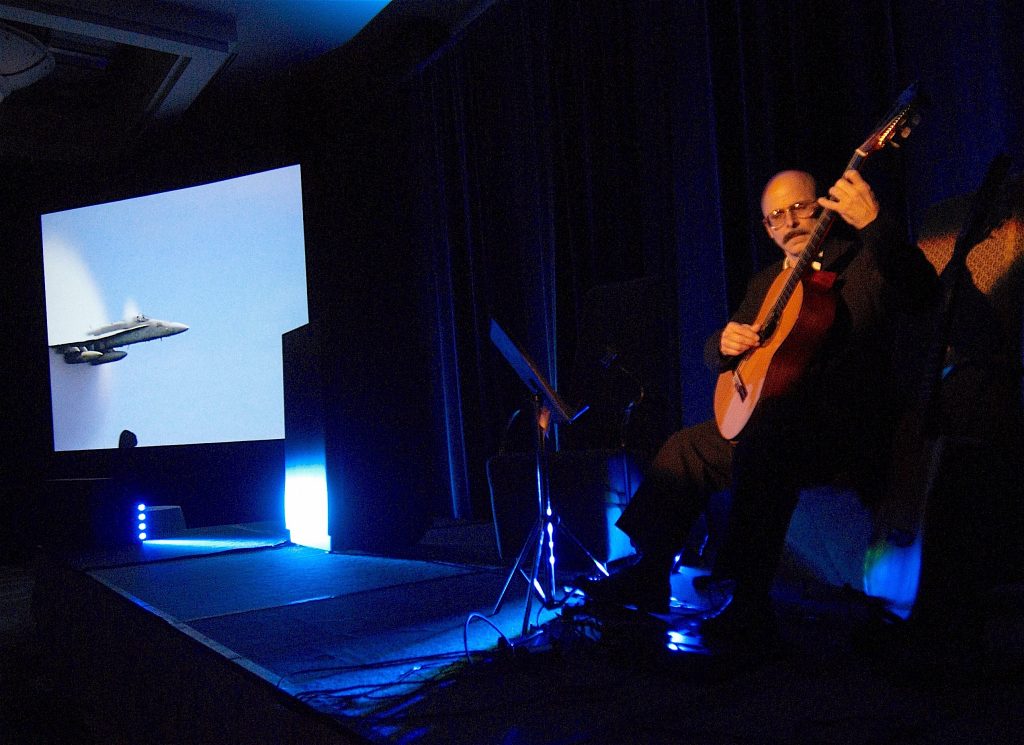Musicians have a saying that if you don’t practice for one day, you’ll notice. If you don’t practice for a second day, other musicians will notice. And if you don’t practice for a week, the audience will notice.
So, what are you practicing?
My friend Russ Ferrara, who I met in college, and with whom I created a performance piece, is a trained classical musician.
“When I first started playing guitar,” he said, “practice was about improving my technical skills.”
“I was running scales from the bottom to the top of the instrument’s range – and getting my fingers callused and tied in knots,” he told me.
“Early on,” he said, “practice for musicians is about becoming acquainted with our instruments.”
“But, now, after playing professionally for four decades,” he added, laughing, as he does so easily, “I’m pretty well-acquainted with this instrument.”
So, at this point, Russ focuses more on rhythmic challenges, or new concepts, or working on particularly difficult pieces that require enormous dexterity.
I believe we can learn a lot about practicing from musicians. Practicing is not something that most of us think about.
We usually just do whatever it is we are doing.
But musicians, regardless of how accomplished, always practice.
That’s interesting to consider.
What might you be doing differently if you were practicing?
And what would you be practicing?
Would it be getting more in tune – with yourself? Connecting more – with others?
Listening on a deeper level?
Playing more?
Some have proposed that it takes 10,000 hours of practice to become an expert.
Others have tried to dispute this notion.
That debate hardly matters.
What matters is that practicing can make a world of difference.
To become more of yourself, what are you going to practice?
What will you notice if you skip a day?
And what will others notice if you skip a week?


